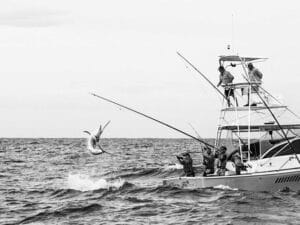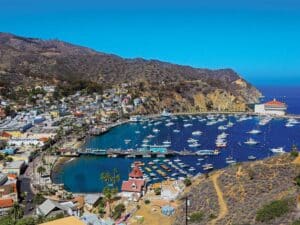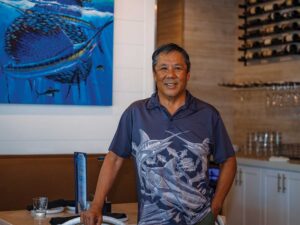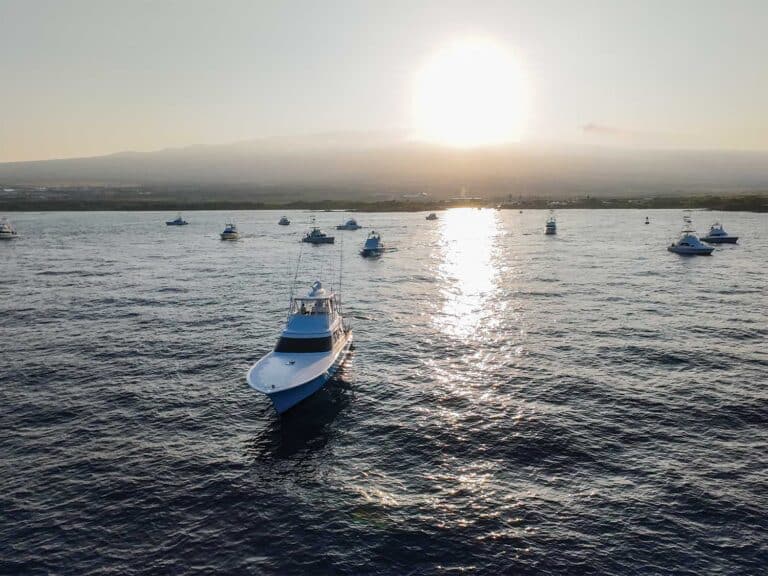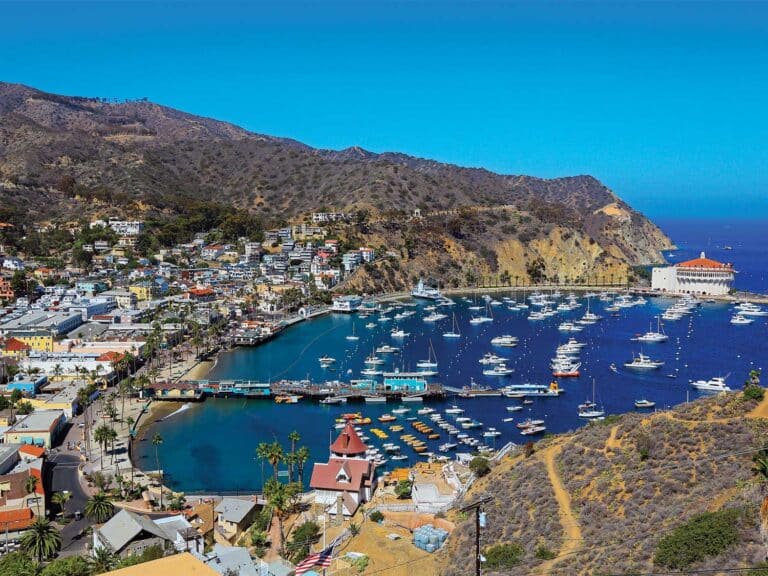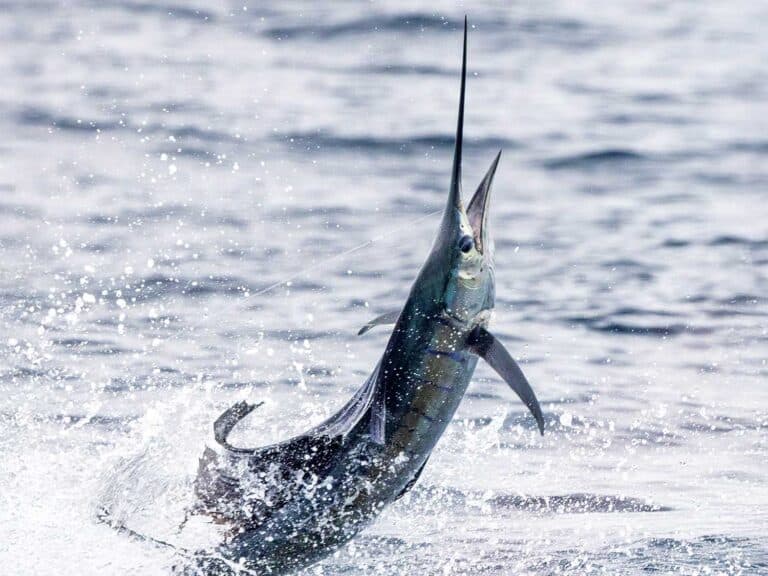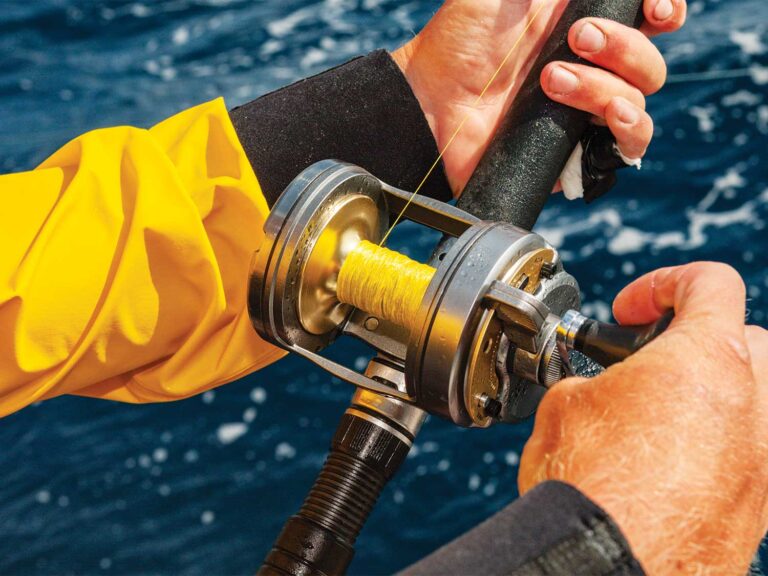
As president of the American Sportfishing Association, Glenn Hughes is a very busy man. Created in 1933 to represent tackle manufacturers, the ASA is the sport-fishing industry’s trade association; today, it supports the interests of hundreds of businesses, agencies and organizations and is the champion for the multibillion-dollar industry as a whole. The ASA is responsible not only for promoting fishing-friendly legislation in Congress, but also for producing the sport’s largest trade show and managing several important advocacy and outreach programs. Hughes and his wife Beth reside in Annapolis, Maryland; their 25-year-old son, Conor, works in Florida, helping to promote sport fishing with the Florida Fish and Wildlife Commission.
Q: What are some of your earliest fishing memories?
A: My twin brother and I grew up with our other three siblings outside Philadelphia. In 1964, our parents bought a cottage on a lake in the Poconos where I fell in love with the water. Our dad introduced us to fishing with Zebco reels, like most other first-time anglers. I didn’t even understand what the drag was or why it would ever need to be loosened. I would just tighten it down until I couldn’t tighten it any more, and I broke off a lot of fish. Eventually I learned.
Q: How did you get into the marine industry?
A: After college at Penn State, I took a brokerage-sales position with Power and Motoryacht magazine, bought a liveaboard 35-foot Chris-Craft and never looked back. Jeff Hammond started MotorBoat magazine and gave me the chance to run that title for a couple of years, which led me to meeting Terry Snow and eventually joining World Publications to run Sport Fishing magazine in 1991. In fact, one of the best decisions I never made was trying to talk Terry out of buying Marlin. It was the spring of 1992, and the entire country was coming off one of the worst recessions ever. Terry asked me if he should buy Marlin. I looked at the numbers and the market and told him he should pass. Fortunately, Terry is a lot smarter than me, so he made the purchase, and the rest is history. [World Publications was eventually purchased by Bonnier Corporation, which currently owns Marlin, Sport Fishing and Saltwater Sportsman, among many other brands.—Ed.]
Q: What drew you to becoming an advocate for recreational anglers?
A: As you grow up in the industry and see what goes on around our fisheries, you can’t help but feel a responsibility to do something to protect it, help it grow and give back to what has given us so much. I got involved with the ASA 20 years ago. Before I knew it, I was chairing a committee, speaking at the events and seeing that the rest of the fishing world needed a lot more help, especially with increasing participation. I got on the board of the Recreational Boating and Fishing Foundation and started making a difference. Soon after Mike Nussman, then-president of ASA, reached out to me and asked if I’d be interested in running the association after he retired.
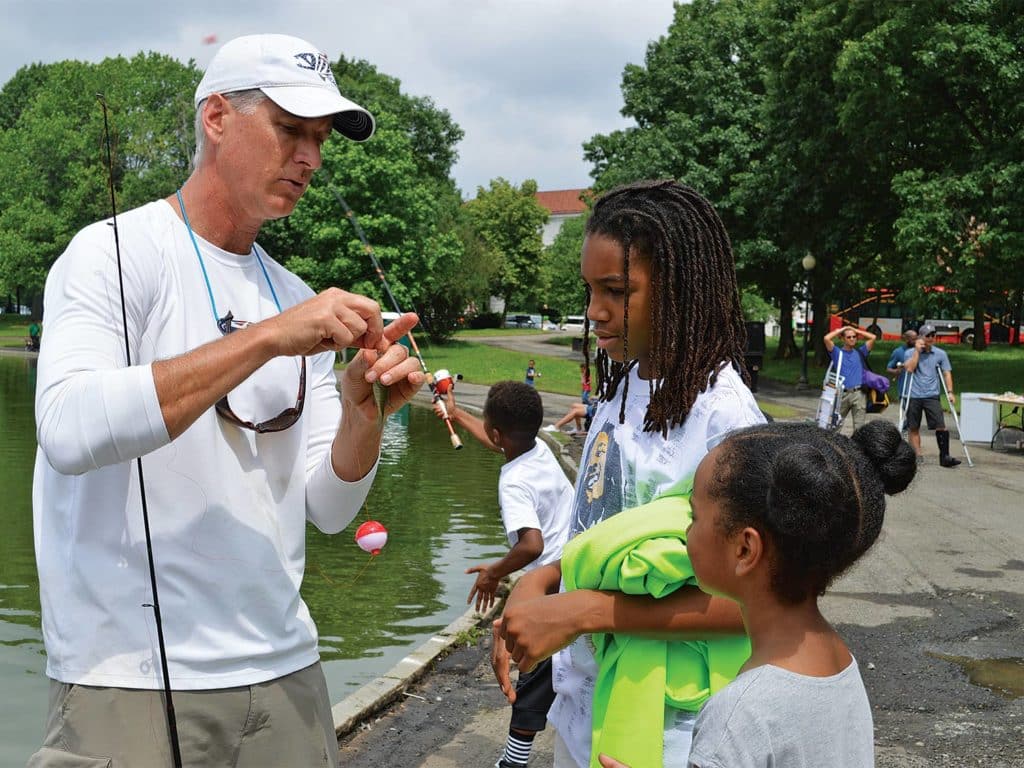
Q: How do we get more kids fishing?
A: All kids go to school. There are more than 130,000 public and private K-12 schools in the country with almost 50 million students attending five days a week. It’s time to get serious about getting fishing into the mainstream physical-education curriculum, so we can get these kids outdoors, learning to fish. I’ve hired an R3 director for recruitment, retention and reactivation and together with the RBFF and other organizations, we are going to make it happen.
Q: Women are the largest segment of new anglers. What’s the key to recruiting more women in fishing?
A: We need to attract more young mothers. Did you know that most kids are introduced to fishing by their mothers? We need to give the mothers the tools to be successful, the belief they can do it and make them feel comfortable in what has historically been a man’s world. If the moms and the schools can come together, I believe they will make beautiful music together.
Q: The ASA has been involved in some memorable legislative action recently—what highlights can you share?
A: Besides the Modern Fish Act, the list is actually long for 2018. We helped close a loophole in the Billfish Conservation Act that stops the sale of marlin in any state except Hawaii. We also helped deny a proposal that was going to allow commercial longlining off the east coast of Florida. We finally got California to ban drift gill nets in the state waters and now we are going after the federal waters. Nonbillfish related, we are proud of what we’ve accomplished in the Gulf of Mexico, working with the states and the Gulf Council to rightfully return 40 days of red snapper fishing to the recreational market.
Q: Can you briefly explain the Modern Fish Act and the impact it will have on offshore sport fishing?
A: What this does is require fisheries managers in the United States to perform long-overdue examinations of fishery allocations based on modern criteria, so that recreational fisheries can be overseen using more appropriate management tools. In a nutshell, the National Oceanic Atmospheric Administration and our government have finally acknowledged the size and value of the 11 million saltwater anglers and our limited impact on the resource compared to the commercial fishery.
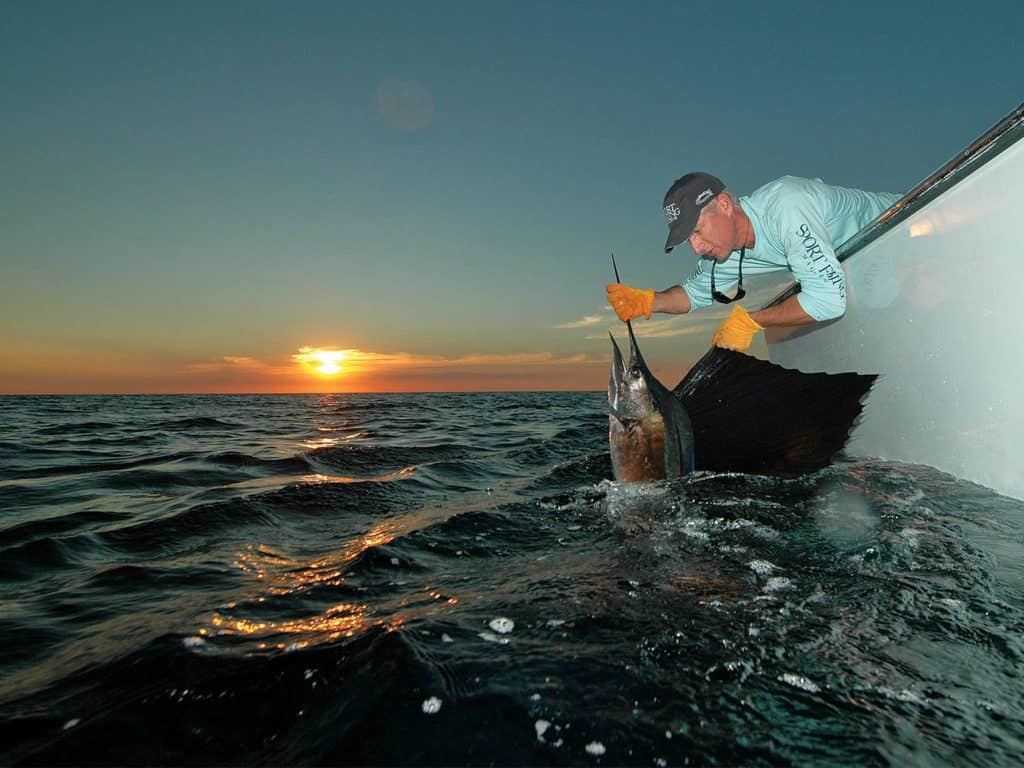
Q: The International Convention of Allied Sportfishing Trades, better known as ICAST, is produced by the ASA. How have you seen this show change over the past few years?
A: ICAST is the largest fishing trade show in the world. We’ll have more than 600 exhibitors and 15,000 individuals coming together in Orlando in mid-July. We have more than doubled the participants and almost doubled revenue. We’ve also led many policy and legislative conversations on-site, including with former Florida governor, now Sen. Rick Scott, who has attended the past five years.
Q: Will ICAST stay in Florida?
A: I just signed contracts to keep us there through at least 2024, so yes, it will be in Florida for the foreseeable future.
Q: Where did you catch your first blue marlin?
A: During the first season of the Sport Fishing Television show in 2002, Dean Clarke and I were in Bermuda, looking hard for a marlin bite around the Bermuda Big Game Classic tournament. It took us until the last 30 minutes of the third day, but we finally caught a little 250-pound blue. The staff gave me a replica mount from our friend Ray Douglas at King Sailfish Mounts—to this day, that fish is the highlight of my office in D.C.
Read our interview with Ellen Peel, president of The Billfish Foundation.
Q: What has been your most memorable catch?
A: That has to be my 750-pound bluefin tuna in Prince Edward Island. It took until the third and final day of the trip for me to catch one. We had broken off three earlier that morning. We finally scored a solid bite and the next hour was some of the toughest and yet most rewarding fishing of my life. It was nice to see that fish released as well.
Q: What kind of legacy do you want to leave for future generations of anglers?
A: When I retire, I’d like to know I left the water cleaner than when I got here, that there are more sustainable fisheries, that there is more access for anglers and that there is more worldwide participation in the sport of fishing. I could live with that.—Sam White

